Healing from Polite White Supremacy Together
This article is featured in the October 2025 episode of the Quakers Today podcast.I attended my first affinity space in 1994 at the Friends General Conference (FGC) Gathering. There, I met other Black, Indigenous, People of Color (BIPOC) Friends and took part in a workshop exclusively for us: it was called Internalized Oppression and was facilitated by a BIPOC Friend, Anita Mendes. The workshop was a transformative experience for me. I listened to the negative experiences that BIPOC Friends shared in their meetings and recognized how their encounters with European American Friends were all similar. It was wonderful to realize that I wasn’t imagining these experiences; other BIPOC Friends were experiencing them too. Participating in that workshop planted a seed in me that has grown over the past 30 years.
Two years later, I spent time on the campus of Cheyney University of Pennsylvania, which is a public university located 22 miles from Philadelphia. Founded in 1837 by Quakers as the Institute for Colored Youth, it is the oldest historically Black college and university in the United States. I was there to participate in my first Fellowship of Friends of African Descent (FFAD) Gathering. During our time there, I was spiritually and at times felt physically lifted as the majority of Quakers, students, and faculty I encountered were of African descent. Our worship blended programmed and unprogrammed styles, reflecting the diverse nature of our community.
Another significant affinity space emerged in 2016: Ujima Friends Peace Center (UFPC), born out of FFAD members’ response to the epidemic of state-sanctioned violence against Black men, which was especially present that summer. UFPC created an African-centered Quaker worship community in North Philadelphia, a community significantly populated by African Americans, where many individuals and families live below the poverty line. UFPC also offers programs, which include a twice-monthly food giveaway, summer Freedom Schools, and Pan African Sister’s Health Initiative (PASHI), which teaches young people to sew while also making hygiene products such as reusable menstrual pads for women in Africa and the Caribbean. In 2021, during the pandemic, Ujima Friends Meeting formed an online, predominantly BIPOC Quaker community without borders.
Central Philadelphia (Pa.) Meeting, FFAD, and FGC nurtured the seed that was given to me when I first participated in an affinity space. The seed grew into a ministry dedicated to dismantling racism within Quakerism. A part of my ministry has been to provide affinity spaces for BIPOC Friends through retreats, worship, worship sharing, and open houses. These affinity spaces for BIPOC Friends are a special and extremely valuable experience for us. I have seen the faces of BIPOC Friends light up when given an opportunity to be in a space with more than one other Friend of Color. I have also found relief from my own isolation in facilitating these groups. During these experiences, I have discovered how important it is for us during our time together to share our stories of how we came to Quakerism and what keeps us here.
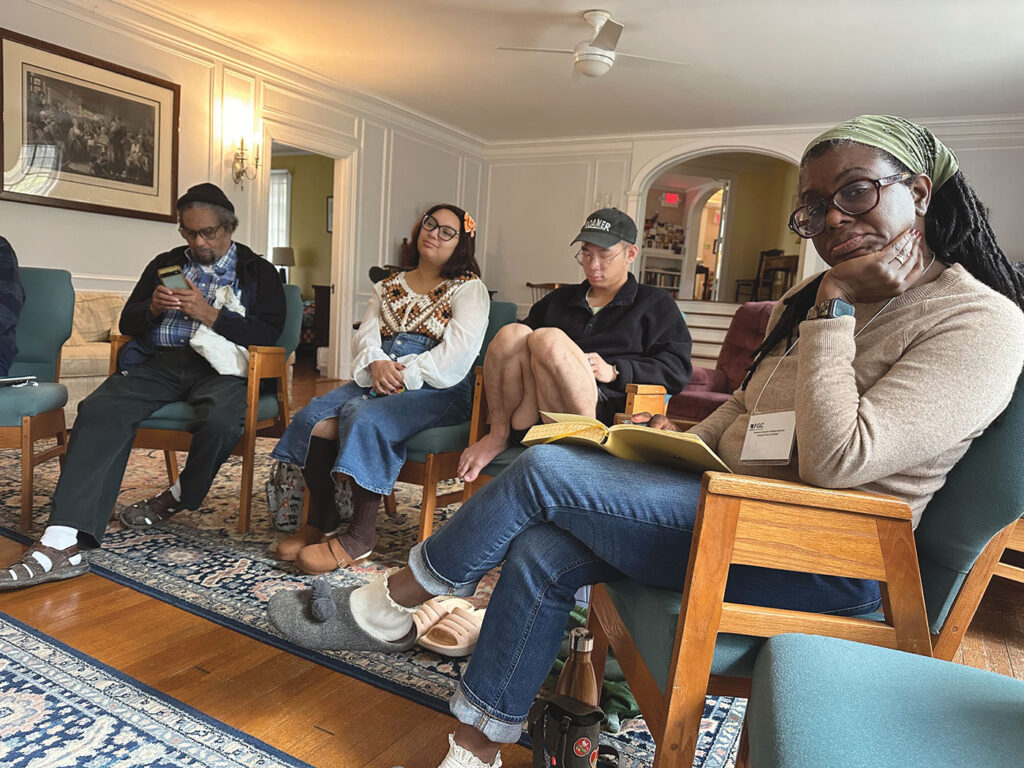
I am constantly confronted with the question, especially from European Americans, of why BIPOC Friends need affinity spaces. A few of the people asking me that question have been BIPOC. I know that these affinity spaces are not needed or utilized by all BIPOC Friends. But I am glad that over the years, these spaces have been available and used by those who do.
These events provide space to create communities and begin healing some of the wounds that occur in meeting, hurts that are inflamed week after week as we have to hide parts of ourselves and assimilate in order to be accepted by the larger body.
I live in a world that practices what Yawo Brown calls Polite White Supremacy (PWS). In their 2015 article “The Subtle Linguistics of Polite White Supremacy,” they state, “Polite White Supremacy is the notion that whites should remain the ruling class while denying that they are the ruling class, politely. . . . It has been referred to as the Casual American Caste System, Delicate Apartheid, [and] Gentle Oppression.”
Affinity spaces create opportunities to heal wounds from repeatedly masking parts of ourselves to fit into predominantly white meetings. In a society structured around PWS—with subtle, coded, and ever-present demands to conform—BIPOC Friends often feel compelled to prioritize white comfort over our own authenticity. As Brown notes, PWS operates through comfort, control, and confidentiality, reinforcing whiteness as normative and marginalizing others.
Brown states that passive methods of PWS have been ingrained in every aspect of American society, and Americans of all classes can and do participate in Polite White Supremacy. Brown goes on in detail to explain why they use the term PWS instead of “racism”:
First, saying PWS puts the responsibility solely on the creators of a systemic problem. Second, this phrase addresses the subtlety and casualness with which oppression is administered. Thirdly, it eradicates the all-too-common confusion between racism and prejudice.
They also explain that Polite White Supremacy relies on the three key components of comfort, control, and confidentiality to ensure its success.
Brown defines racism as the systemic oppression of one group of people who can be categorized within certain phenotypical traits over multiple generations and is sanctioned by our country, the white majority and ruling class, and tied to a power structure and access to resources.
Polite White Supremacy attempts to control language, narrative, and perception, creating white privilege and the sense of entitlement. It creates a code that keeps a hierarchical system by race—violent yet relentlessly claiming it subtly—as it blinds people to how the disenfranchisement of BIPOC people enriches their lives.
Left: Participants at FGC’s 2024 Pre-Gathering Retreat at Haverford College, in Haverford, Pa., sharing back rubs. Right: FGC’s 2023 Friends of Color Fall Retreat at Pendle Hill retreat center in Wallingford, Pa.
You might ask why I’m discussing Polite White Supremacy in a Quaker journal issue focused on affinity spaces. My answer is simple: most white people in the United States of America—including Friends—live in a constant affinity space where their culture is considered the default. Eurocentric norms shape Quaker spaces. Some will say that this does not apply to the Religious Society of Friends because we are unique: our community is different, and we were the first religion to end enslavement, after all.
As I have shared in my Pendle Hill 2021 Stephen G. Cary Memorial Lecture, titled “Radical Transformation: Long Overdue for the Religious Society of Friends” (which was turned into a pamphlet with the same title), the systems of white supremacy, racism, colonization, and capitalism continue to erect walls that prevent BIPOC from joining and remaining in our Quaker community. Another point is that religion itself, including Quakerism, gave Europeans the right to colonize Africa, the Caribbean, and Turtle Island (North America). They implemented the commodification of land and people, making them all property through state-sanctioned structural violence under the guise of the Doctrine of Discovery. Friends also used the Doctrine of Discovery to build empires. In her book Christian Slavery: Conversion and Race in the Protestant Atlantic World, Katharine Gerbner states that by the 1670s, “the largest community of Quakers outside of the British Isles was in the slave and sugar-rich island of Barbados.” According to Gerbner, Ann Austin and Mary Fisher were the first Quaker missionaries to arrive in Barbados in 1655. They attracted planters, merchants, and craftspeople to join them in Barbados, where enslavement was accepted into these Friends’ convictions and practices. Friends used the Doctrine of Discovery to participate in the colonization of Barbados, where they appropriated land for their sugar plantations.
The Doctrine of Discovery erected barriers between Europeans and BIPOC by calling some Christians human and non-Christians non-human, creating the legal, religious, political, medical, social, economic, and ethical framework that justified white superiority. It established the devastating pattern of natural resource extraction, enslavement, forced labor, separating families, and genocide: all of which continues to happen in our world today.
In the mid-1800s, the U.S. claim of Manifest Destiny drove westward and southern invasions. It held that the United States was destined by God to expand its dominion and spread democracy, Christianity, and capitalism throughout the North American continent. Its enactment dispossessed Indigenous tribes of their collective, sovereign land and supported the European American invaders’ sense of entitlement to the wealth of stolen people and land. It was believed to be both justified and inevitable.
These violent patterns of dehumanization created systems of oppression that were established and maintained by fear and massacre. My ancestors endured the governmental removal from their ancestral lands, the separation of children from their parents, enslavement, and cultural genocide through assimilation.
Friends owned, sold, traded, and captured enslaved Africans. Quakers considered enslavement necessary for their economic development. After George Fox’s 1675 visit to Barbados, Friends established regular meetings for worship for people of African descent but for only those whom they enslaved. Africans and people of African descent were not allowed to become members of the Religious Society of Friends until 1784. Worship for African descendants took place in separate meetinghouses, or if they were invited to worship in a meetinghouse with people of European descent, they were placed in segregated sections in the back or balcony during the eighteenth and nineteenth centuries in the United States. Friends were good about donating money and their time to establish schools for people of African descent, such as the Institute for Colored Youth. However, Quakers for the most part were hesitant to admit children of African American descent into Quaker schools.
Through our core belief of continuing revelation, changes have occurred within the Religious Society of Friends since the seventeenth century. It was not until the middle of the twentieth century that Friends regularly admitted students who were not of European descent in the majority of their schools on the U.S. East Coast. Now, people of African descent can become members of Friends meetings; we can sit wherever we choose in meetinghouses; and our children are educated in Quaker schools alongside white children. However, barriers remain in Friends communities.
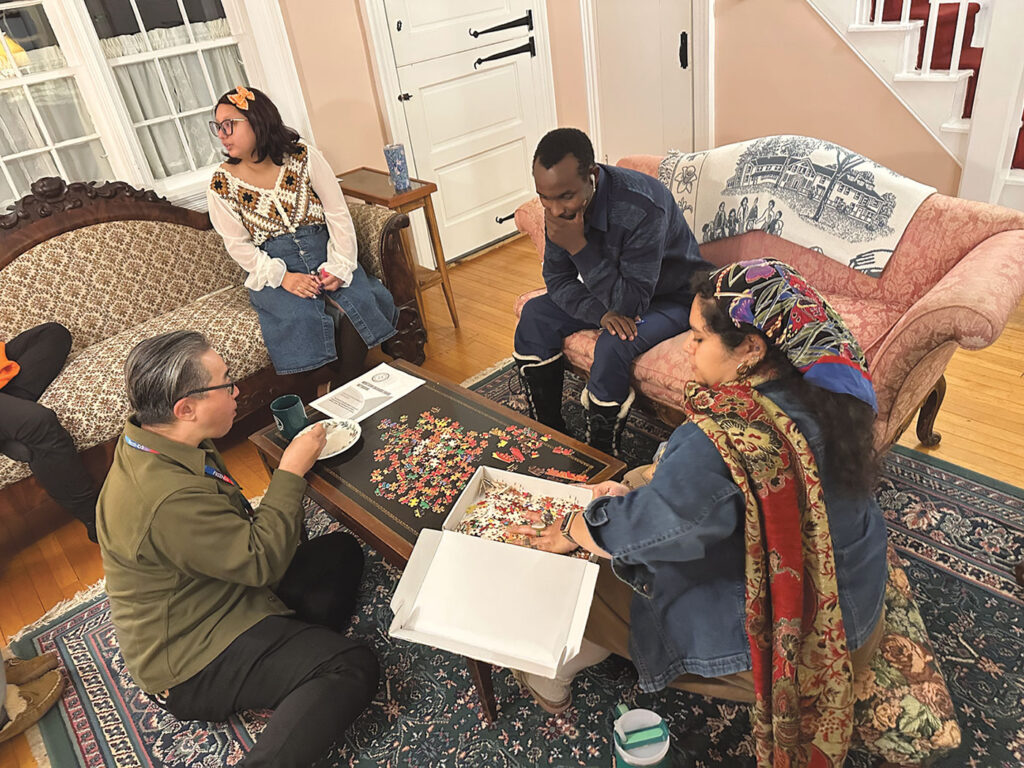
Our past is always present. I encourage you to go to Friends General Conference’s website and read the Quaker Coalition for Uprooting Racism’s (QCUR) statement on “Racial Wounding and Racial Justice in Quaker Communities.” In their statement, QCUR demonstrates how centering whiteness is at the core of Quakerism. As you question this declaration, think about your community expectations. How many meetings begin with libations? How often do Quaker potlucks feature traditional African American, Asian, Latino, Palestinian, or Indigenous dishes? Do you see dance traditions beyond contra, square, or folk at our gatherings?
These subtle cultural reinforcements of whiteness show why BIPOC affinity spaces are not only needed but essential. In them, our bodies relax. Our language shifts. Our food, music, and stories are centered and celebrated. We no longer need to accommodate white comfort; we simply are.
Quakerism itself is an affinity space, set apart from broader society. The joy many Friends feel at yearly meetings or the FGC Gathering mirrors what BIPOC Friends feel in our own sacred spaces. Just as white Friends find renewal in community, BIPOC Friends need that too, especially as we navigate heightened isolation in meetings, schools, and workplaces.
The barriers established by Polite White Supremacy explain why affinity spaces for BIPOC Friends are needed and appreciated by many. I want a place where my needs, experiences, and feelings are centered: a place where my brown skin, kinky hair, clothing, food, music, and dance are seen and treated as normal.
In the BIPOC affinity spaces, my body relaxes, and my tone and language change. The people in these spaces know from experience how it feels to be told every day that you are not good enough and will never be normal, no matter how hard you try. Believe me: I tried for many years. In affinity spaces, we share our lives and get a chance to center and celebrate our “abnormality,” an abnormality I have grown to cherish. Having a space where I do not need to constantly center Polite White Supremacy provides an opportunity for me to breathe.
This summer, I attended a yearly meeting where they offered a worship group specifically for BIPOC Friends. Our group was small, but all of us were able to share ministry each day we met, and we were thankful for our time together. It was the only opportunity during those sessions that we were able to be in community with each other.
BIPOC Friends crave and need time to be together in community, the same way Friends enjoy coming together for yearly meeting sessions and other Quaker gatherings. Think of the isolation many Friends experience across the country in their home communities, schools, and work environments; well, BIPOC Friends experience that isolation even more strongly. It has been nice to see yearly meetings and other Quaker organizations provide affinity space for BIPOC Friends.
I am grateful that more Quaker communities are creating BIPOC affinity spaces. These spaces provide such a lifeline to BIPOC Friends. There are several for whom these affinity spaces are the only way we maintain a connection with Friends because they have left their local meeting, don’t have one, or no longer feel safe attending it. We are living in uncertain times in this country and the world. When people of European descent are scared, BIPOC people are terrified. As I retire from Friends General Conference in November, I give thanks for having been in a position to support them, and I pray they will continue to grow and thrive.


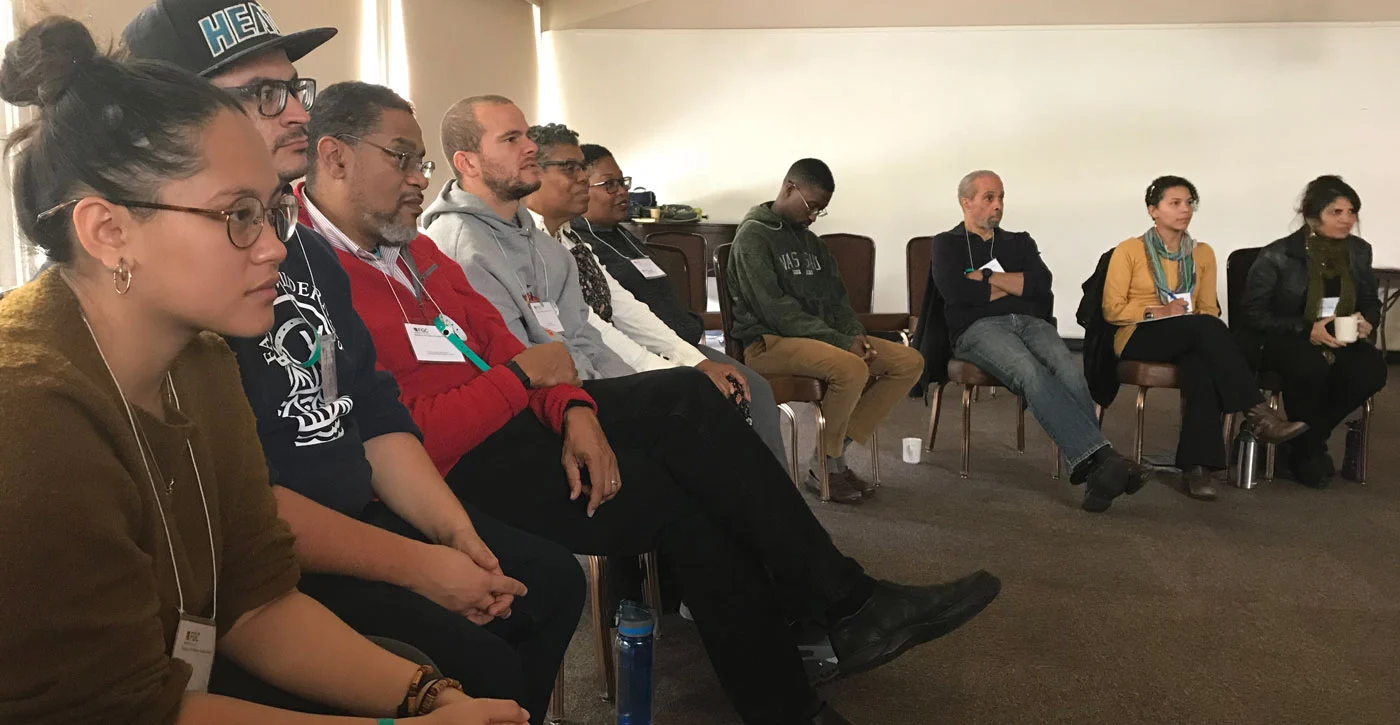


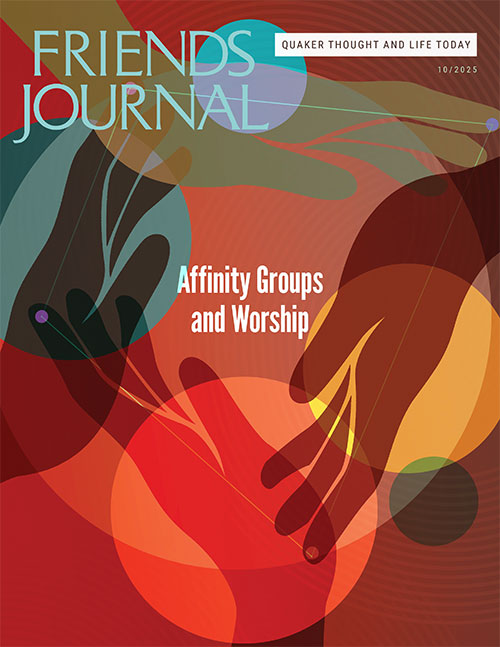
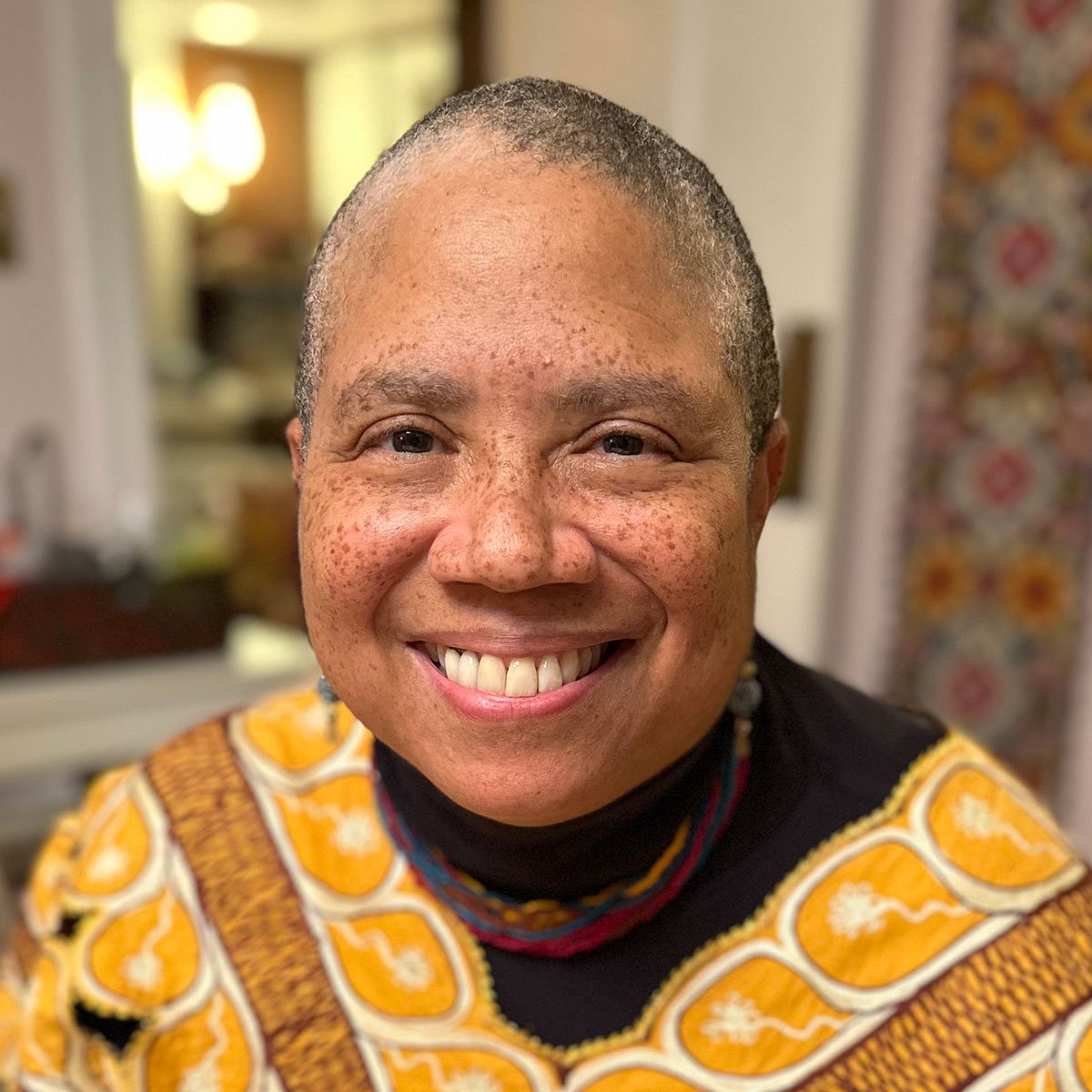
Thanks Vanessa for this. I have now know there is BIPOC. Learned alot about WPS. Blessings.
Sincere gratitude to you for sharing this and giving Voice, Vanessa.
As someone who grew up in Haverford, I am painfully aware that there is a need for this expantion of Quaker awareness.
There are many things that I’ve come to find in my 70+ years. I find that we are all a mixture of good & bad. I take a middle path.